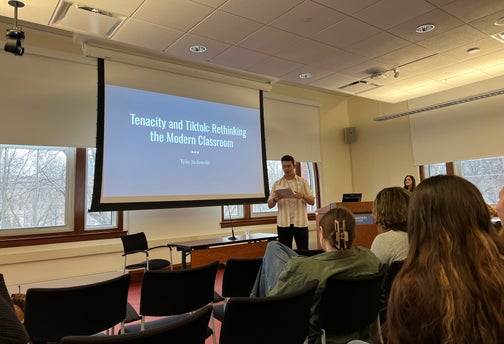Sociology is not just about the study of society, but acting to improve on it for all concerned.
The implications of social inequality take many forms, through noticeable disparities in wealth, healthcare, education, housing, political power, cultural influence and more. In this concentration, you will pay special attention to the origins and consequences of these systems; whether globalization has increased prosperity or created further inequities; as well as the social constructs of race, the accessibility of health care, the public policies that have (and have not) been put into place to address inequality; and the ethics of peace and resolving conflict.


